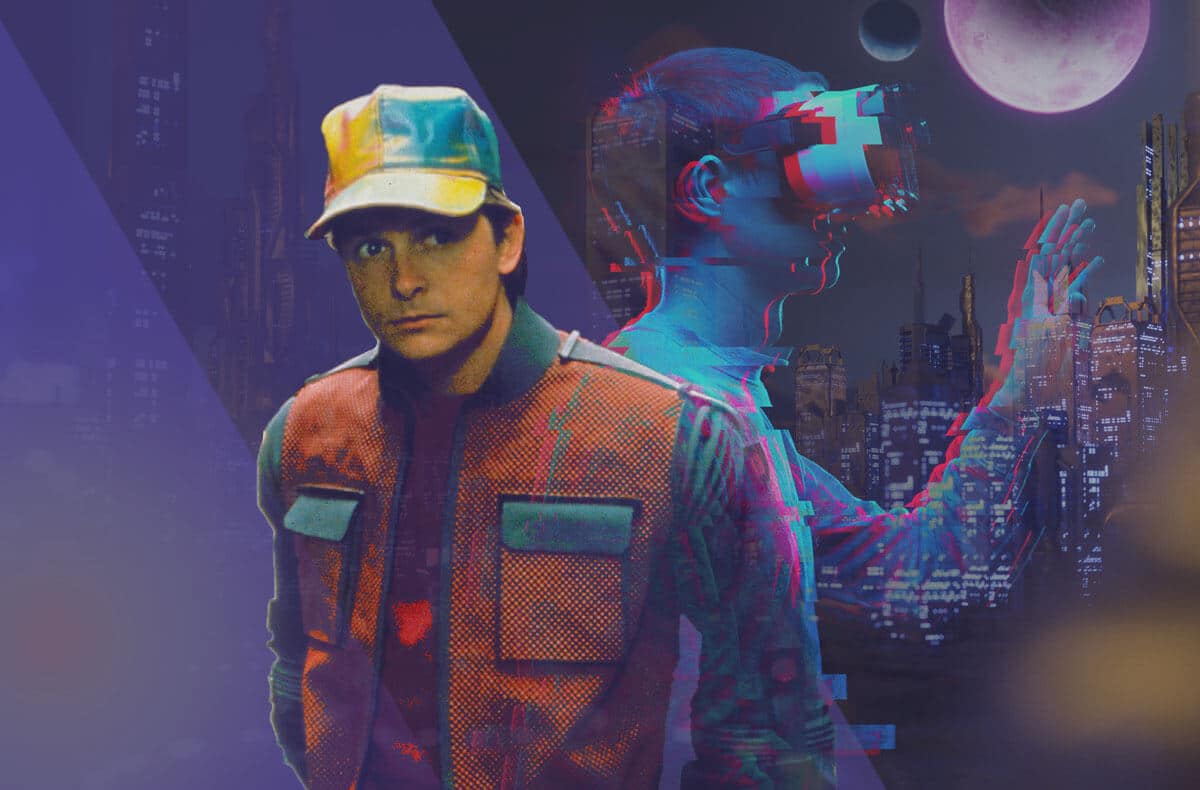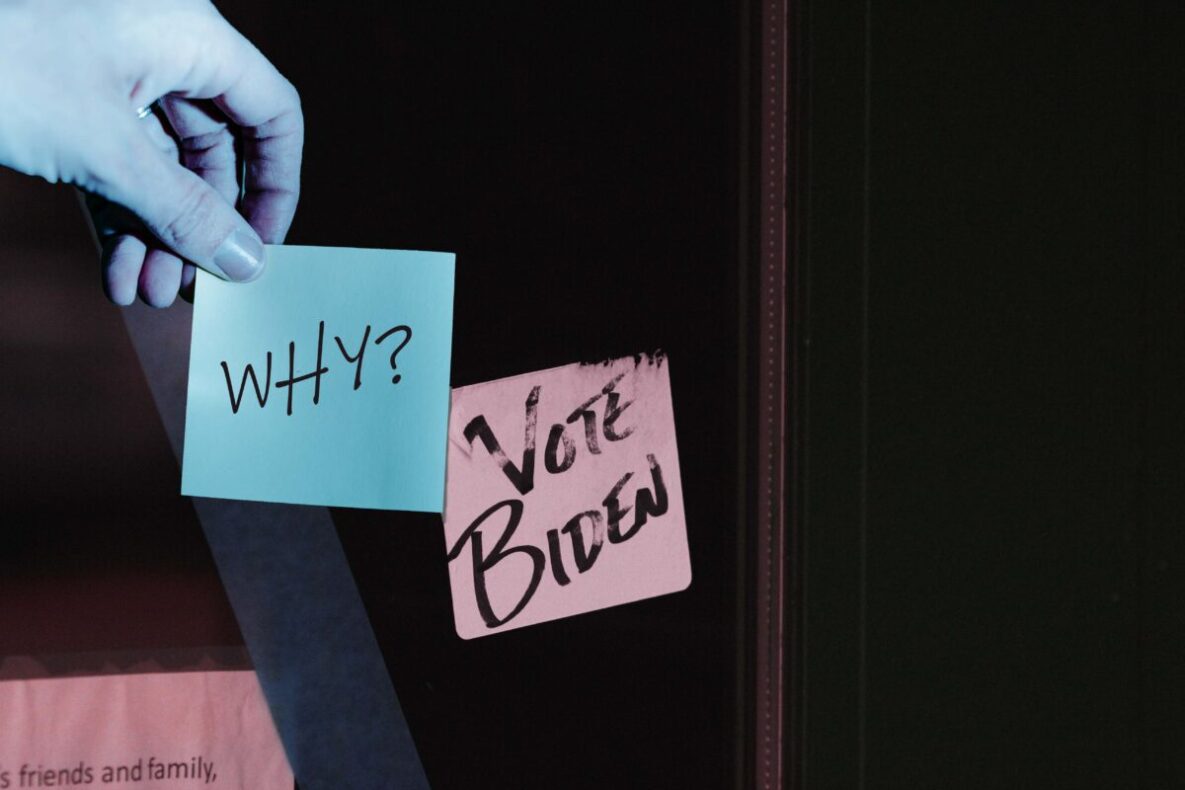
Call me biased, but there’s no better decade than the 1980s. Hot on the heels of two World Wars, the Baby Boom, the free love revolution, and disco, the 80s was the decade promising that the future had arrived. It boasted unmatched advancements in technology that brought computing into the home, iconic films that pushed new boundaries of movie magic, and pop superstars that forever changed the cultural landscape. Growing up immersed in this culture, we felt like anything was possible, and I’d argue we have this bright, bold optimism to thank for much of the technological advancement we enjoy today.
To envision the future requires vision, a willingness to dream and imagine. The entertainment the children of the 80s consumed was certainly diverting and fun, but it also unlocked our imaginations, encouraging us to embrace the future’s yet untapped potential. I believe the decade moulded me into someone who could make a career by leaning into new technology’s unseen potential. Looking back, I can see how I was significantly shaped by my childhood exposure to exciting new innovations and awe-inspiring pop culture spectacle, from Michael Jackson to Marty McFly.
When I was a boy, I avidly watched Dr. Who, Star Trek, and War Games. The BBC’s Tomorrow’s World was always a highlight of my week: I was captivated by stories of how new technology would change the world; seeing the people behind such innovation always thrilled me. However, one of my most indelible childhood memories was when my parents surprised me with a Sinclair ZX81—my very own computer. I bawled my eyes out, completely floored. While I was awed by the possibilities of that machine and dumbfounded that it was now mine, I was all the more moved because I knew my parents couldn’t afford it and had purchased the computer secondhand. The machine only had 1K of memory, but my time exploring its possibilities was unforgettable. Seeing the future with that first computer—and receiving that portal with such great parental love—forever changed me.
Although it’s now 2021—and I’m still waiting for my flying car—I am certain that this loving exposure I had to technology in such an expansive, future-minded decade is likely what gave me the courage to leap into unknown technologies. Surely, I didn’t create the internet, but I would argue that the broad optimism and specific open-mindedness to technology to which 80s culture exposed me allowed me to foresee its potential. Two decades ago, my best friend and I had a single laptop between us—and one idea that would change our lives. My soon-to-be business partner had access to tickets to shows and other live performances through a ticketing company; I could code. What if we were to sell tickets to such events online? What if we removed the queue from the spectator experience?
I mocked up a very basic website and London Theatre Direct was born. At the outset, we couldn’t even accept credit cards, and everything was paid for by cheques. Remember those? This was at the time of Lycos and AltaVista. No one had ever bought tickets online before. West End and UK music venues proved to be hidebound in their thinking and the notion took years to catch on. However, our optimism carried us through. I highly doubt I would have had such a stalwart partner through our early, lean years if he hadn’t been my peer. After all, it was our enthusiasm for the internet and the possibilities it might hold that brought us to hatch this crazy scheme in the first place. Today, the company is one of the UK’s leading ticket agents and distributors.
Whilst my status as a proud 80’s kid unquestionably shaped my futurist mindset, I’m far from alone in seeking out my fanboy fantasies in modern innovation. Creativity has a long and proud history of paving the way for innovation: Simon Lake, inventor of the first open-water operational submarine, was a huge fan of Jules Verne’s Twenty Thousand Leagues Under the Sea, whilst we have Edward Bellamy’s 1888 novel Looking Backwards to thank for dreaming up our most ubiquitous method of spending: the credit card—(which yes, LTD is fully able of accepting today!) Now, most anywhere you look, you’ll find the childhood dreams of other 80s kids brought to life. Hollywood planted the seeds in our youthful minds, and years of technical advancement have allowed them to flourish, bloom, and integrate into our everyday realities.
Virtually every part of modern life has been revolutionised and reshaped according to the vision of a future that once entertained us. In transportation, GPS has made real-time route redirection for traffic—as teased in cartoons like The Jetsons—a routine part of our daily commute, while Tesla brought self-driving, self-parking KITT from Nightrider into our own garages. The new Model S even boasts a Nightrider-esque steering wheel, or “more of a sci-fi yoke”—I wouldn’t be surprised if the next software update offers a variety of KITT’s signature snappy comebacks.
Much of modern work and homelife is eerily similar to what we’d predicted in the Star Trek series. Hands-free commands control everything from initiating phone calls to lighting up our smarthomes (their “Computer” was our “Alexa” or “Hey Siri,”) FaceTime and Zoom are our “on screen” calls, and early flip phones were suspiciously reminiscent of the tricorder. Even the show’s pervasive touchscreens can be seen in today’s electronics. Star Trek’s sleek, minimalist design and intuitive—if fictional—tech is reflected in every new tablet and gadget we purchase. We never saw StarFleet officers hunched over their keyboards, coding: technology flowed around them, an invisible support facilitating their day-to-day operations. Just a few decades past my clunky first PC and we’re already living with pocket computers and WiFi everywhere. It truly is awe-inspiring to consider: and even more exciting to think about what might come next.
With Web 3.0 about to dawn on the horizon, the next nostalgic chapter of the future is just about to unfold. The metaverse—another fictional concept turned real, having been first coined by sci-fi writer Neal Stephenson in his 1992 novel Snow Crash—is just starting to make its way into the public consciousness, no doubt now accelerated by its big buy-in from social media giant, Facebook-cum-Meta. VR headsets promise to bring immersive, Holodeck-style entertainment into your own living room, while AR wearables might soon interrupt our dinnertime, like vidglasses in Back to the Future II. And although I’m not quite sure of how the logistics will work out, a Chinese electric vehicle company has announced a 2024 rollout for—be still my heart—a flying car.
Though admittedly there are plenty of dystopian depictions of the future we might consider as cautionary tales—hello, Terminator—I’m an avid believer that innovation will be what saves us. The 80s taught us there is no limit to what we can achieve with ingenuity, determination, and vision, and that remains true today. Modern challenges will require modern solutions, and we must hold onto this optimistic mindset as we embark on the next chapter. I, for one, cannot wait to see what’s next.



